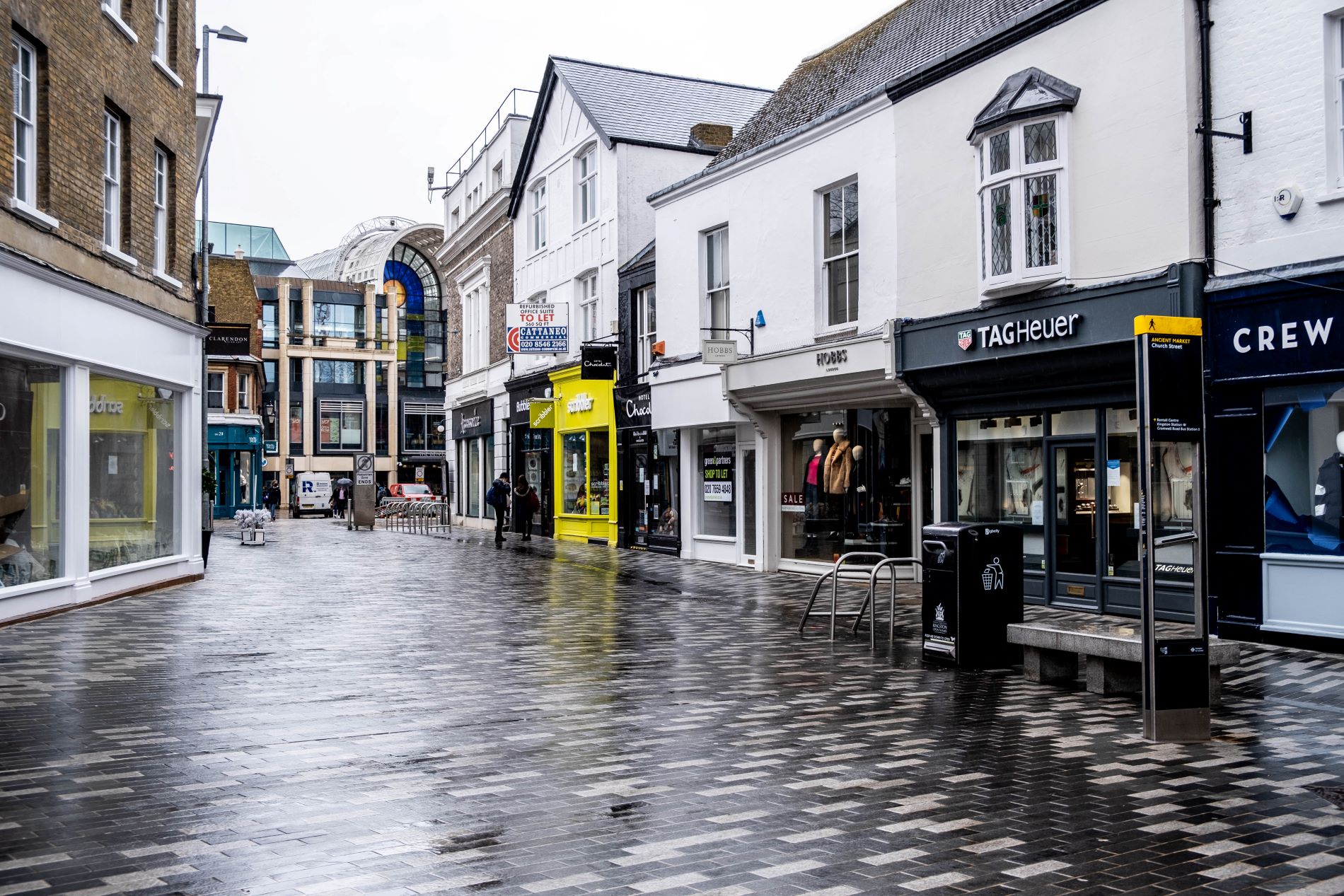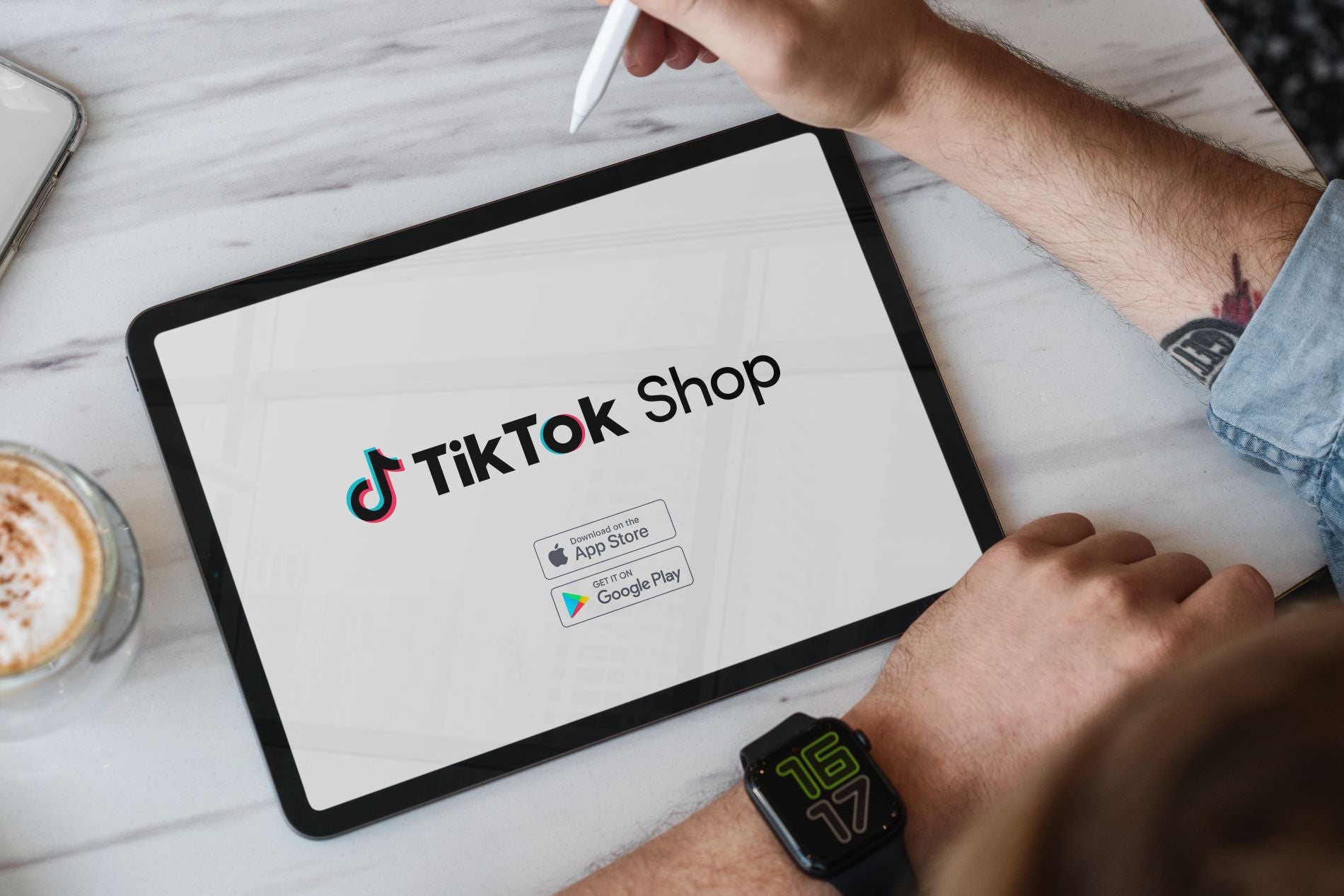Companies each giant and small inform CNBC that the most recent spherical of President Donald Trump’s tariffs, focusing on nations everywhere in the world and taking the commerce levies as much as the best charges in a century, might end in freight being deserted at ports as cash-strapped house owners and CEOs reject incoming items that might financially wipe them out.
Rick Muskat, president of the family-owned shoe retailer Deer Stags, which imports round two million footwear a yr — with about 98% of their males’s and boy’s footwear made in China and bought in Macy’s, Kohl’s, JCPenney, and on Amazon — is among the many enterprise house owners getting ready to tackle exponentially elevated import duties, however says the monetary ache and cut up of the ache between his agency and retailers can be tough.
His as soon as $50 pair of males’s footwear and $35 little boys’ footwear have already gone up $80 to $65, respectively, after latest commerce conflict strikes by the U.S., with Deer Stags set to pay greater than a 104% new tariff on Chinese language items being stacked atop earlier tariffs.
Previous to the tariff will increase in 2025, his firm was paying a 6% responsibility on their footwear.
“Then the tariffs have been raised by 10% two instances, bringing my tariffs as much as 26%. Then final week Trump placed on a further 34% and now the 50% levied right now. All of those tariffs deliver my tariff complete to 110% on my non-leather footwear. My leather-based footwear now have a tariff of 120%. How do you finances that?” Muskat stated.
He estimates that the price of freight orders topic to the brand new tariffs will rise from $60,000 to between $600,000 and $1 million.
“The money stream burden is the speedy downside,” he stated. “We do not have the capital to grapple with this. There is just one pile of cash and I’ll pay for this, however meaning I am not paying for one thing else. We’re going to pay the responsibility as a result of now we have no selection.”
Muskat stated he will not reject the containers on the port which might drive the provider to take the freight again, however he has instructed one manufacturing facility to pause transport for per week or two, to see how issues unfold. Conversations with retailers are ongoing.
Different U.S. importers are anticipated to desert items at ports, which might then both return to the producer or it may be auctioned or destroyed within the U.S.
Transport containers on the MSC Livorno await unloading on the Port of Lengthy Seaside, California on March 5, 2025, in the future after US President Donald Trump.
Frederic J. Brown | AFP | Getty Photos
“The most important development we see is shippers trying to not settle for their freight,” stated Joseph Esteves, CEO of Maine Pointe, a worldwide provide chain guide. “Lots of these corporations are levered financially. They do not have the working capital necessities and so they haven’t got the money. In order that they merely can not simply tackle this and hope to see what occurs. They do not have the liquidity to try this,” he stated. Steadiness sheets and money ranges have been extra delicate to main adjustments in prices, as shopper demand slowed, “earlier than all this nonsense,” he stated. “Each CEO we’re speaking to appears to only be ready. They’re simply not accepting at this second.”
Proper now, many corporations are telling their manufacturing amenities to delay cargo and never have freight loaded onto a vessel. If the products arrive to port and so they cannot pay the import tariffs, the products sit at port and the corporate is billed with expensive detention expenses.
For a lot of importers, ‘there are not any factories in the US’
Bruce Kaminstein, an angel Investor with New York Angels and founder and former CEO of cleansing merchandise firm Casabella, is aware of the challenges of producing in China. Kaminstein was in a position to navigate the tariffs within the first commerce conflict with China however he warns start-up corporations do not need the coffers of massive corporations to resist the capital crunch.
“Merchandise can be left in containers as a result of retailers will not take them,” stated Kaminstein.
For now, any freight on the water won’t face the brand new tariffs. In up to date steering on the China tariffs launched by U.S. Customs on Tuesday, an “on the water clause” defined the cargo coming into the ports right now or within the coming weeks won’t be topic to the tariffs, which will not be tacked on to any items arriving till Could 27.
However Kaminstein says it takes years for manufacturing provide chains to be established.
“The common measurement houseware firm, for instance, is $20 million. They do not have the capital to open up a manufacturing facility. … There are not any corporations, no factories on the market that make merchandise for different manufacturers,” he stated. “That is the actual level right here. In case you have an excellent concept, the place do you go to make the product? There are not any factories right here in the US making merchandise for different manufacturers.”
Mary Rollman, KPMG US organizational strategist & partnership government, stated corporations have extra refined and higher analytics to worth the price of transferring a provide chain right now, however added it does take years to seek out and qualify a provider.
“Corporations want to guage the price of restoring a provide chain,” Rollman stated. “They’ll overview the arduous knowledge on mounted prices, trying on the labor pool to see if there are sufficient staff to fill the demand. In addition they must see whether it is nonetheless cost-effective to maintain manufacturing exterior of the U.S. or transfer to different nations with fewer tariffs as a result of it’s nonetheless cheaper than coming again.”
The opposite choice, she stated, is staying within the nation the place manufacturing takes place at the moment and banking on a brand new administration in 4 years which could rescind the tariffs.
“We use parts from throughout,” Kaminstein stated. “Very hardly ever are merchandise simply made in a single place. We’re used to a worldwide provide chain. At Casabella, we introduced merchandise in from everywhere in the world, and we made merchandise in the US.”
The Small Enterprise Administration instructed CNBC in an electronic mail that Trump’s commerce plan will in the end assist U.S. enterprise house owners.
In an electronic mail, an SBA spokesman wrote, “The SBA totally helps President Trump’s efforts to revive honest commerce, which can deliver again American jobs and revitalize American business, empowering entrepreneurs with the extent taking part in subject to compete and win. Mixed with SBA’s new manufacturing initiative, together with our effort to chop $100 billion in crimson tape, this administration will unleash historic alternative for small companies and staff alike.”
Deer Stags’ “razor-thin margins” prohibited it from frontloading merchandise, and shoppers could in the end need to pay. Muskat says tough worth talks with retailers are underway.
“We had one dialog with a retailer who agreed to separate the rise however they didn’t suppose they might go up in worth. Many of the retail neighborhood continues to be making an attempt to determine what to do,” he stated. “It’s so fluid. How do you intend? Hope shouldn’t be a technique, however most individuals are hoping Trump and Xi will discuss. Each are speaking powerful however this can be damaging to each nations.”
“Tariffs on items that buyers purchase day-after-day like garments or that can not be grown right here like espresso or bananas simply tripled or extra,” stated Josh Teitelbaum, senior counsel of Akin. “We must always anticipate that can ripple by means of the financial system.”
“It is essential to recollect the brand new tariffs can be paid for by U.S. importers,” stated Jon Gold, vice chairman of provide chain and customs coverage on the Nationwide Retail Federation. “Whereas retailers will mitigate as finest they’ll, they sadly will not be capable to soak up the entire elevated prices. With some tariff charges close to 50% and others greater than 100%, many retailers can be compelled to boost costs. We encourage the administration to rapidly negotiate agreements with nations that we’re engaged with commerce.”

Related posts
Subscribe
* You will receive the latest news and updates!
Quick Cook!
Co-op Boss Calls For Charges Reform Forward of “Important” Price range
UK excessive streets face a important second, Co-op has warned, stating that with out reform enterprise charges will proceed to…
TikTok Launches Store Native: How To Apply
TikTok Store has at this time introduced the launch of Store Native, a assist scheme to assist British SMEs harvest…



